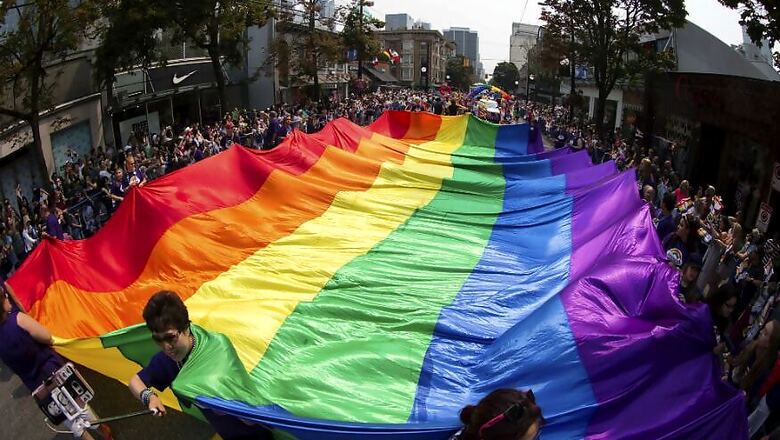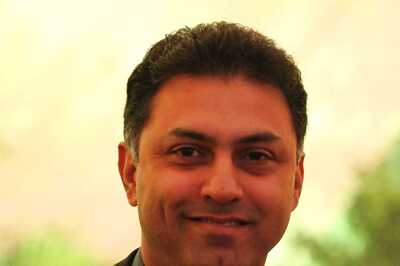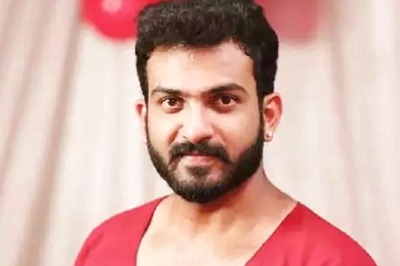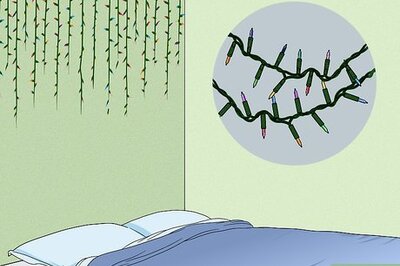
views
New Delhi: With a historic judgment on right to privacy, Supreme Court of India has now set the stage for a re-look into its previous judgment on section 377. While pronouncing its order on the right to privacy, Supreme Court has set the stage for a re-look into the 2013 judgment which criminalised India’s LGBT community.
‘Discrimination against an individual on the basis of sexual orientation is deeply offensive to the dignity and self-worth of the individual,’ observed Justice DY Chandrachud in his judgment.
Another member of the nine-member bench, Justice Sanjay Kishan Kaul, observed, ‘It is an individual’s choice as to who enters his house, how he lives and in what relationship. The privacy of the home must protect the family, marriage, procreation and sexual orientation which are all important aspects of dignity.’
In fact Supreme Court judges on Thursday not only underlined a person’s right to make love however they want to, in the privacy of their homes, they also castigated the 2013 Justice Koushal judgment.
The December 2013 judgment, the nine-member bench went on to state was having a ‘chilling effect’ on a person’s fundamental rights.
‘It poses a grave danger to the unhindered fulfilment of one’s sexual orientation, as an element of privacy and dignity. The chilling effect is due to the danger of a human being subjected to social opprobrium or disapproval, as reflected in the punishment of crime. Hence the Koushal rationale that prosecution of a few is not an index of violation is flawed and cannot be accepted. Consequently, we disagree with the manner in which Koushal has dealt with the privacy – dignity based claims of LGBT persons on this aspect.’
The bench also stated that, ‘the family, marriage, procreation and sexual orientation are all integral to the dignity of the individual. Above all, the privacy of the individual recognises an inviolable right to determine how freedom shall be exercised.’ Privacy also connoted, the bench added, ‘a right to be left alone.’
The order has issued a new hope to Indians who have claimed a right to make love the way they want to, especially among the sexual minorities like the LGBT community.
‘So many of us were hopeful that Supreme Court will today uphold the right to privacy and give us a new hope. The state cannot criminalise how one wants to express themself. Supreme Court has given us hope that we have, within our space, the right to express ourselves the way we want to, allow us to make love the way we want to and with the person whom we want to. The justice Kaushal judgment was incompatible with our society,” said Drubho, who is a member of, and regularly organizes, Delhi queer marches.
He added that today’s judgment now will prevent the police, “from barging into people’s bedrooms.”
Members of the community, like write/activist Gautam Bhan, also said that the most important take-away from the judgment was how it underscored not just 'privacy' but 'dignity' as well.
"I think we are members of LGBT community are impacted as citizens of India first. I see today's judgment extending beyond "sexuality". At the same time for us the judgment, in opposition to the Koushal judgment, argues that sexual orientation is fundamental under article 14, 15 and 21 of the Indian constitution. That's very important to us as it speaks not just of privacy but of dignity as well. From the community today's order it is extremely welcome. To hear sexuality be spoken of once again, like the 2009 Naz judgment, is what the fight was all about."



















Comments
0 comment